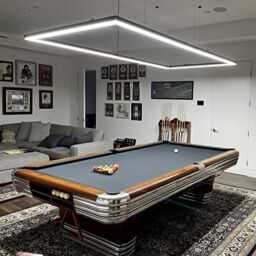Perhaps you didn’t realize it but lighting in the classroom is a crucial part of learning. It was discovered through research that fluorescent lights, when they flicker, could cause severe challenges to students trying to learn. Often fluorescent lights are uneven as one wears out over time, this blinking causes distractions and disrupts eyesight and thus, slows the learning process. It can cause nausea, drowsiness, and even tax the immune system.
Obviously, that’s not good for schools, but what if you are homeschooling? Have you considered your home lighting, shading, level of light? At the 2013 “Strategies in Light” symposium and conference there was a workshop on Interior Lighting and one of the questions considered was the challenges we have in our schools, not only the costs associated with changing the lighting, or the power requirements of various types, but the effect all this had on the workplace and in classrooms.
Look here is the deal, if professionals in education are so worried about this, and if businesses and corporations realize that they lose productivity with poor lighting then perhaps you as a homeschooling parent ought to also take immediate notice. You might think you are saving money with those special light bulbs or with LED lighting, but if it is not done correctly, you’ll cause eyestrain and drowsiness, and well, your child will not be learning at optimum, and perhaps lose concentration, comprehension, and/or retention by over 50%.
The first thing you should realize is that natural lighting is the best of all. If you are homeschooling try to use a room with the most natural lighting during the day. As the sun goes down or during a cloudy or overcast day use UV lights, not fluorescent, and not LED. No, LED lights are not that bad, but they’ll get enough LED lighting from their computers, laptops, tablets, and perhaps future flat screen TVs. UV light bulbs are the closest to natural lighting.
Your child should be sitting near the light, and not across the room in a shaded area, as that makes the eyes tired, and your child may have some trouble concentrating. It is also worthy to ask your child how they like the lighting. Does it fluster them? Does it annoy them? If so, that is a good reason to lower the intensity a bit or adjust the closeness of the light source. All of this matters and an annoying light or poor lighting will make the difference in the quality of your homeschooling progress. So, please consider all this and think on it.
BY by GAHZLY
#Setting #Homeschooling #Room #Lighting #Extremely #Important

